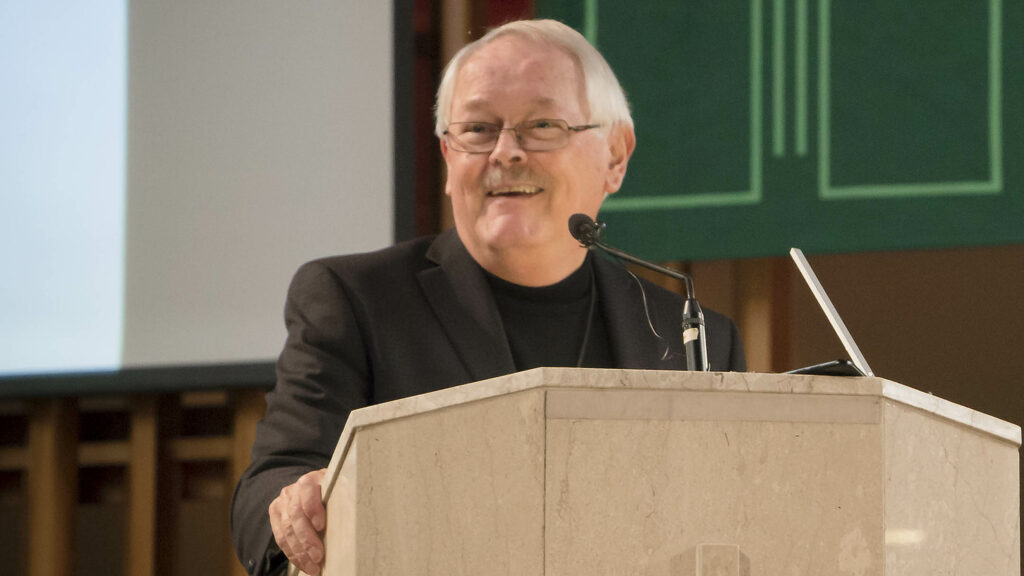I do not want to die from some medical condition; I want to die from death!
Ivan Illich wrote that. What’s meant here? Don’t we all die from death? Of course, in reality that’s what we all die from, but in our idea of things, most often, we die from a medical condition or from bad luck through cancer, heart disease, diabetes, Alzheimer’s, or as the victim of an accident. Sometimes, because of how we think of death, we do die from a medical condition.
That’s what Ivan Illich is trying to highlight here. Death is meant to be met and respected as a normal human experience, not as a medical failure. Death and its inevitability in our lives are to be understood as a growth point, a necessary maturation, something to which we are organically and spiritually destined and not as an aberration or unnatural intrusion into the life cycle (an intrusion that could have been avoided except for an accident or failure of medicine.) We need to understand death the way a woman carrying a child contemplates its delivery, not as some aberration or risky medical procedure but as the full flowering of a life process.
We pay a price for our false idea on dying, more than we imagine. When death is seen as a medical failure or as tragic bad luck, its threat then becomes a menacing specter and a threatening darkness inside that cauldron of all those other energies and fears we do not consciously deal with and into which we dare not venture.
Ernest Becker speaks of something he calls “the denial of death” and suggests that our refusal to meet and respect death as a natural process rather than as an aberration impoverishes us in untold ways. When we falsely fear death then the inchoate sense of our own mortality becomes a dark corner from which we stay away. We pay a price for this in that, paradoxically, by falsely fearing death we are unable to properly enter into life.
Martin Heidegger affirms much the same thing in his understanding of life. He suggests that each of us is (in his words) a “being-towards-death”, that is, from the second we are born we already have a terminal condition (called life) and we can only be free of false fear if we consciously live out our lives in the face of that non-negotiable truth. We are dying. His language around this can leave us depressed but, like Illich, he makes a positive point. For Heidegger, in the end, we don’t die because of bad medicine or bad luck. We die because nature has its course and nature runs that course and we will, in fact, enjoy our lives more if we respect that natural course because that acceptance will help us to value more how precious our moments of life and love are.
Ironically, euthanasia, for all its sophisticated claims to be something that lets us control death, would have us die precisely from a medical condition and not from death (which is a natural process).
Of course, wanting to die from death and not from a medical condition does not mean we do not value medicine and what it offers for our health and the preservation of our lives. We are obliged by our nature, by our loved ones, by common sense, and by an inalienable principle right within the moral order itself to take all ordinary medical measures available to preserve our health. Modern medicine is wonderful and many of us, including myself, are alive today thanks only to modern medicine. But we must be clear too that when we come to die it won’t be because of a medical failure but rather because death is our natural end. Just as we were once born from our mother’s womb, there comes a time when we need to be born again from the earth’s womb.
Moreover accepting death in this way is not a negative stoicism which robs life of delight and joy. To the contrary, as anyone who has ever had a health crisis the brought him or her close to death will tell you, facing death makes everything in life all the more precious since it is no longer taken for granted.
One cautionary flag: This kind of talk is not necessarily for the young in whom the denial of death is, for a good reason, very powerful. While young people should not be willfully blind to their own mortality or live their lives as if life here were to go on forever, they shouldn’t yet be focused on death. Their task is to build a future for themselves and the world. Death can be dealt with later. Metaphorically speaking, they need to be focused more on nurturing the embryo than worrying about its delivery.
At the center of Jesus’ teaching lies a great paradox: Whoever clings to life will lose it and whoever lets go of life will find it. Ivan Illich, it would seem, agrees.

